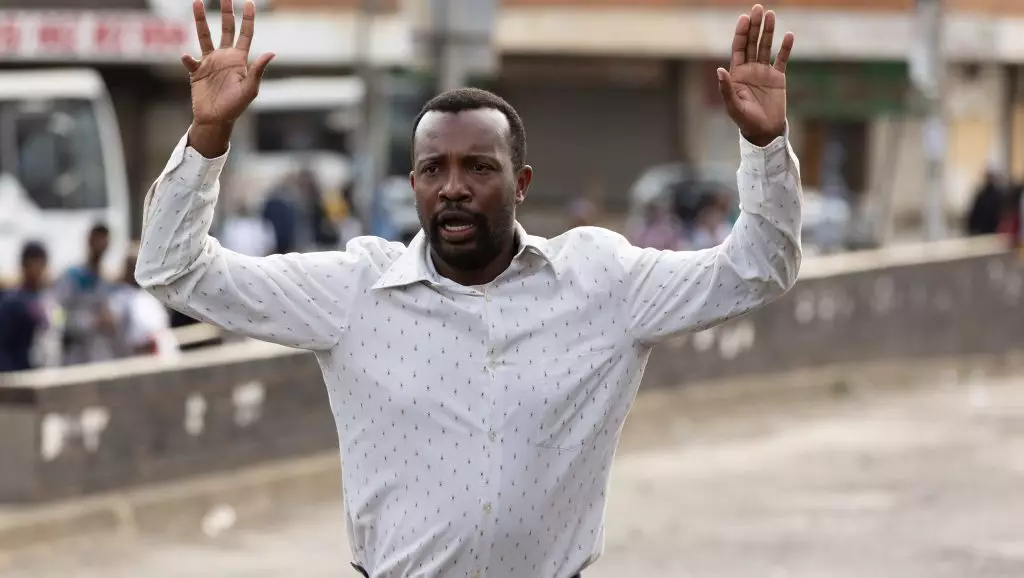The realm of true crime has always been a compelling narrative, drawing audiences into the darker facets of human nature. In this vein, Showmax’s latest series, *The ABC Killer*, emerges not merely as entertainment but as an unsettling exploration of the psyche surrounding notorious serial killer Moses Sithole. Convicted of an astonishing 38 murders, 40 rapes, and six robberies within a chillingly short period, Sithole represents a nightmarish chapter in South Africa’s criminal history. The documentary series delves deep, transporting viewers back to a time when fear permeated the air, mere months after Nelson Mandela’s historic election as the nation’s first democratic president. It was an era filled with hope, yet darkened by the penetrating shadow of violence that Sithole cast.
The Dark Connection
At the heart of this harrowing docuseries is the unnerving relationship between rookie journalist Tamsen de Beer and Sithole himself. In a series of phone calls that blur the lines between journalist and subject, De Beer finds herself drawn into a twisted bond with a man who described his gruesome escapades with chilling nonchalance. The haunting phrase, “I was hoping he was okay all the time, which is absolutely crazy,” encapsulates the psychological torment that can accompany an encounter with evil. It raises profound questions about human empathy and fascination with malevolence — why do we feel a pull to understand those who commit unspeakable acts? This exploration not only serves as a gripping narrative device but also as a mirror reflecting society’s darker curiosities and vulnerabilities.
Reenactments and Realism
Director Jasyn Howes adopts a blend of extensive reenactments and on-location filming, offering a gripping portrayal of the events as they unfolded. Notably, recreating the scenes at The Star newspaper, where De Beer worked, and the various locations of the crimes, adds an authentic layer that skyrockets the tension. Shadowy corners of Pretoria and Atteridgeville, where Sithole prowled for his victims, are rendered visceral through the careful craftsmanship of the production. Such methodological choices enable viewers to not just witness the unfolding story but to also imbibe its palpable anxiety.
Howes, riding the momentum of his previous success with *Boetie Boer*, knows how to adeptly weave together narrative threads into a cohesive, chilling story. The depiction of real-life figures such as detectives Paul Nkomo and Micki Pistorius, alongside the voices of survivors, underscores the impact of this case on South Africa’s collective psyche. Each contributor adds layers to both the narrative texture and psychological exploration, emphasizing that the ramifications of Sithole’s crimes extended far beyond the numbers.
The Complex Portrayal of Evil
One of the series’ most striking revelations is the multi-dimensional portrayal of Sithole. By dissecting his background and circumstances, *The ABC Killer* challenges the audience to look beyond the barbarity of the actions and consider the intricate tapestry of societal issues, mental illness, and socio-economic factors that culminated in his horrifying exploits. Comparisons to American serial killers, such as Ted Bundy, heighten the relevance of the discussion in a global context. Howes furthers this idea, revealing that such figures provoke a universal response of both repulsion and intrigue, casting a long shadow over the societies they inhabit.
Examining criticisms against the justice system through the voices of legal professionals, the series raises ethical questions surrounding the morality of defense strategies adopted in cases of extreme violence. Are attorneys complicit by defending the indefensible, or do they serve a crucial role in upholding the very principles of justice that allow society to function? This theme runs parallel to survivor narratives, such as that of Buyiswa Swakhamisu, demonstrating resilience amidst unspeakable horror, and amplifying the voices of those often marginalized in the larger discourse around violent crime.
The Enduring Impact on Society
As *The ABC Killer* gears up to captivate an audience hungry for both horror and insight, it calls attention to the broader societal implications of Sithole’s reign of terror. With the legacy of his crimes still echoing through the streets of South Africa, the docuseries not only seeks to recount a frightening chapter in history but also sparks critical conversations around vigilance, justice, and accountability. By confronting these issues head-on, the series emerges as a powerful reminder that in exploring darkness, we must also illuminate the systemic failures that allowed such darkness to flourish. Through this examination, viewers are prompted to engage not only with the past but also with ongoing societal struggles, ensuring that the stories of both victims and perpetrators remain relevant in modern discourse.

